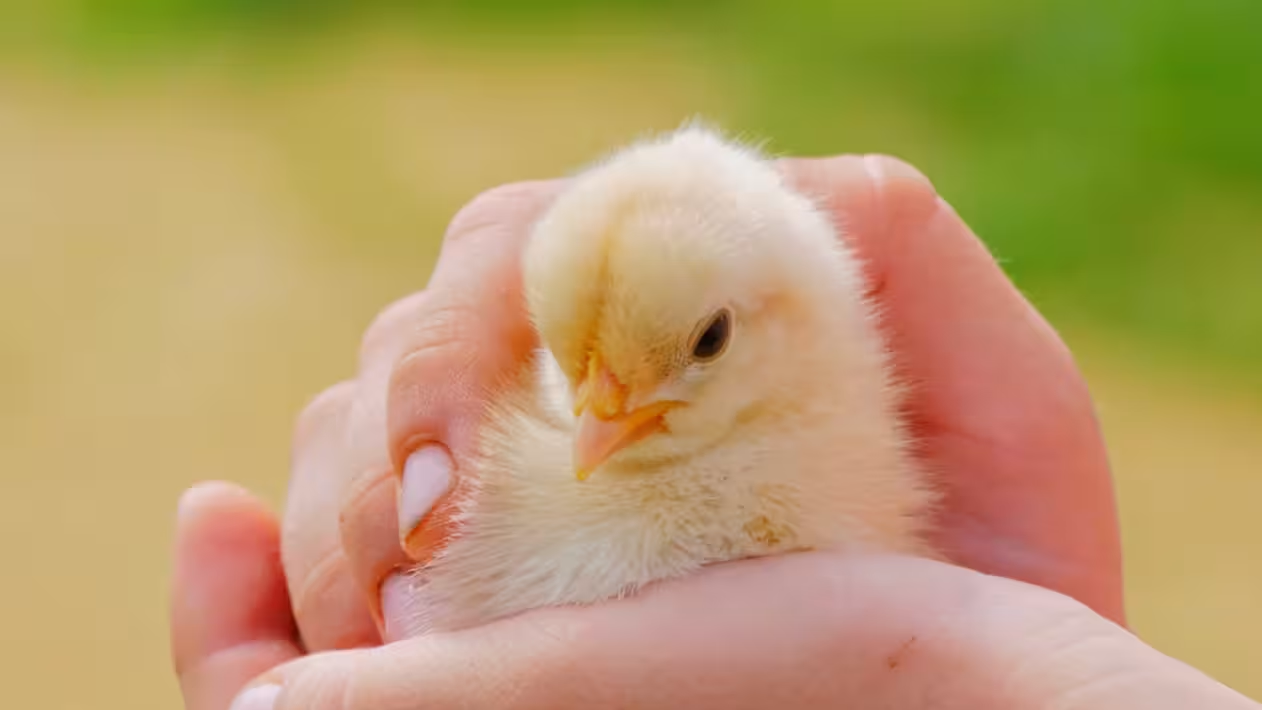Walmart Commits To Stop Culling Male Chicks in Egg Supply Chain, Thanks to In-ovo Sexing Technology





If Walmart follows through on its new policy, it could transform how the egg industry treats its most vulnerable victims: newborn male chicks.

In a significant development that could transform the US egg industry and spare millions of male chicks from a brutal fate, Walmart—which has historically been a laggard when it comes to prioritizing animal welfare—has announced new supplier guidelines that include the adoption of in-ovo sexing technology.
In-ovo sexing technology identifies the sex of embryos before they develop into conscious, feeling beings—preventing the routine killing of male chicks that has long been standard practice in egg production.
This announcement from the world’s largest retailer comes at a pivotal moment, following December 2024’s implementation of in-ovo sexing technology by NestFresh Eggs.
Challenging industry practices that treat animals as products
For nearly a decade, The Humane League has been leading the charge against one of the egg industry's cruelest practices. Our sustained pressure on United Egg Producers (UEP) to ban male chick killing in 2016, combined with our recent partnership with Kipster to implement in-ovo sexing technology, has helped create the momentum for this transformative change.
What the industry euphemistically calls “chick culling” is the brutal practice of killing male chicks, often through live grinding or gassing, shortly after hatching. These newborn animals are killed simply because they cannot produce eggs, reflecting an industry mindset that reduces living beings to their economic value. Each year, 350 million male chicks in the US alone are treated as mere industrial waste, either thrown into industrial shredders or gassed to death on their first day of life.
From specialty to systemic change
Any major company switching to in-ovo sexing has the potential to challenge the status quo of animal exploitation in industrial agriculture.
The Humane League’s Senior Animal Welfare Scientist Dr. Giovana Vieira notes: “Each year, at just one day old, billions of male chicks are killed without a second thought—deemed a ‘by-product’ by the egg industry. Years ago, The Humane League was instrumental in encouraging United Egg Producers to ban this practice that had become the standard in all commercial egg production. With alternative methods available, we’re eager to see male chick culling come to an end once and for all. We encourage all food companies to adopt in-ovo sexing technologies to put a stop to this practice.”
As the world’s largest retailer, Walmart’s influence could help normalize the view that animals deserve consideration regardless of their economic utility—and perhaps even spur the company to make meaningful progress on its cage-free egg policy, which it has been delaying for years despite industry momentum.
Looking forward
While this technology prevents some of the most egregious practices in egg production, it represents just one step toward a food system that truly respects animals as the living, feeling beings they are. The implementation of in-ovo sexing by both specialty producers and major retailers shows that change is possible when we challenge long-held assumptions about how animals can be treated.
The Humane League remains committed to working toward a world where all animals are treated with the consideration they deserve, not just as commodities but as individuals capable of experiencing joy, pain, and the full range of emotions that make life worth protecting.
 Julia Tomkins Wisner
Julia Tomkins Wisner






